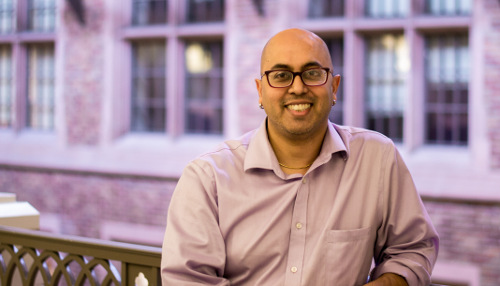 My daughter was doing research for a school project recently at the Seattle Public Library downtown, and she took a photo of a colorful display that pointed out how patrons could ask a librarian when they have questions about what’s true and what’s not.
My daughter was doing research for a school project recently at the Seattle Public Library downtown, and she took a photo of a colorful display that pointed out how patrons could ask a librarian when they have questions about what’s true and what’s not.
If only more people would take that advice.
Instead, many rely on untrustworthy sources — their friends, their social media feeds, and their media echo chambers — to decide what is true. Those sources have become breeding grounds for misinformation and disinformation, and technological advancements have made it convenient to weaponize information to undermine our institutions and our belief in scientific facts. Misinformation spreads like a virus, infecting democracies around the world, and too many people lack the tools and training to recognize it.
Misinformation has been around for centuries, and we can’t wave a magic wand and make it go away. But we can develop the skills, training and technology to foster a more informed citizenry and improve the health of our democracy. The Center for an Informed Public, a new interdisciplinary research center opening this fall at the UW, will make it its mission to resist misinformation, promote an informed society and strengthen democratic discourse. I couldn’t be more proud and excited that the Information School will serve as its home base.
The new center, established with a $5 million grant from the John S. and James L. Knight Foundation and additional support from the William and Flora Hewlett Foundation, will marshal expertise from across the University. Its five co-leaders include iSchool faculty members Jevin West (its inaugural director), Chris Coward and Emma Spiro, along with Ryan Calo of the School of Law and Kate Starbird of the Human Centered Design & Engineering department. Combating misinformation will take a multifaceted approach, and many other faculty and students from the iSchool and across the UW will participate in the center’s activities.
This major undertaking is an example of what I want to see from the iSchool in the future. We live in a time when democratic ideals are eroding and our climate is near a tipping point. It’s a time to be bold and focus on big projects that are going to move the needle on these pressing problems. I find it deeply gratifying to lead a school loaded with researchers who are eager and able to tackle such challenges.
The center also represents an opportunity to further enhance how we educate the next generation of library professionals. As long as libraries have existed, librarians have been guardians of knowledge and distributors of truth. Modern misinformation campaigns present a fresh challenge to librarians. They require new approaches that enable librarians to not only spot falsehoods, but to educate community members in strategies to find the truth for themselves.
The center’s work will help prepare us for the future, but it’s also going to make an immediate impact. It will take an active role in our communities by producing educational materials and training programs and partnering with libraries, schools and the public. It will help communities develop policies around how to address misinformation. It will set aside politics to focus dispassionately on facts and proven science, and develop technologies to assist us in identifying the sources of true and false information.
Democracy depends on an informed citizenry – on people knowing whether the information being shared is factual and whether their own actions are contributing to open, honest public discourse or undermining it. My belief is that the vast majority of people want to know the facts and want democracy to work. Armed with greater media literacy and better technological tools to assist them, people will know whether they are sharing truth or fiction, and whether they are contributing to the problem.
As this new center shows, the iSchool is committed to being part of the solution.
Anind K. Dey
Professor and Dean
August 2019